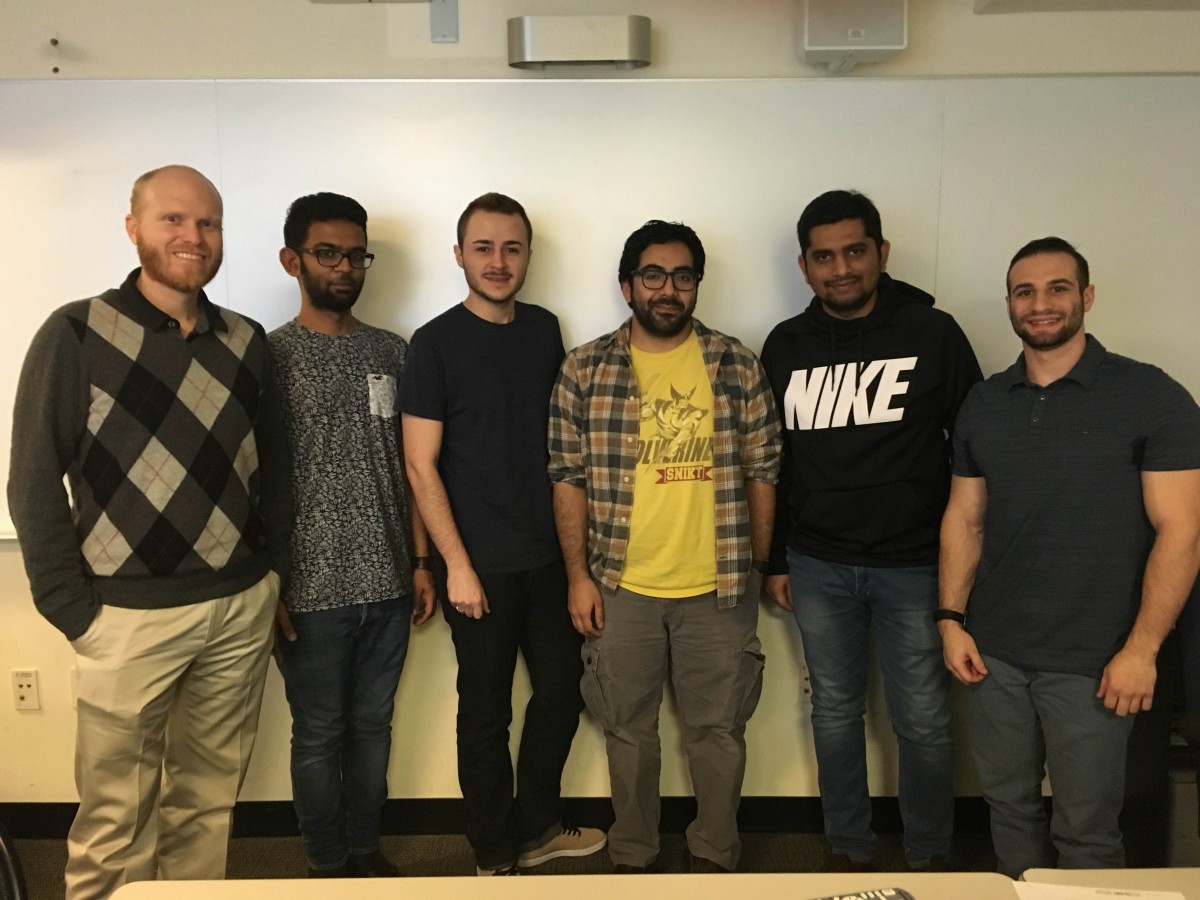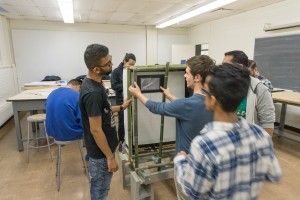by Ariana Sajnani
Recently, I had the privilege to interview computer science students from Pace University who have been working relentlessly, in collaboration with architecture students from NYIT, on a project called AppDock. Their main focus is to provide opportunities to developing countries with a way to understand and use mobile apps that can help improve their life quality and standard.
“We focused our research on Senegal where I have been doing my research for seven years now ” says Dr. Christelle Scharff, NYC Chair of the Computer Science Department and Director of Pace Mobile Lab. Dr. Scharff explains how “AppDock creates a trustworthy, physical environment where local developers and end users can connect on a community level.” Exchange of information between developers and users will promote improvements to app quality and relevance. Dr. Scharff notes that AppDock “will also permit users to become educated on the notion of apps, in general”.
 Even though mobile subscriptions in Africa are over 650 million, locally developed apps are not being used because either the people are not aware that they exist OR they don’t know how to or why they should use apps. App is not part of the everyday vocabulary in developing markets. In addition, there is a disconnect possibly on what the apps do and what the local needs are. An adjustment is needed to better understand app features that can benefit the general masses in their day-to-day lives.
Even though mobile subscriptions in Africa are over 650 million, locally developed apps are not being used because either the people are not aware that they exist OR they don’t know how to or why they should use apps. App is not part of the everyday vocabulary in developing markets. In addition, there is a disconnect possibly on what the apps do and what the local needs are. An adjustment is needed to better understand app features that can benefit the general masses in their day-to-day lives.
This sounds interesting! How are you going to get the locals to use it?
AppDock has been designed as a space with mobile carts where locals can explore a variety of mobile apps right in their own neighborhoods. It contains various tablets that showcase local apps. The carts are biked through cities and villages to reach remote areas. The architects and developers attempt to create a convenient space where people can congregate, exchange ideas, and learn about these applications that can improve their lives in general.
 The proposed space will fold out into a huge dock, similar to ones that we see in mobile stores such as Verizon and AT&T, and will have phones provided for people to try each of the new apps they see on the screens.
The proposed space will fold out into a huge dock, similar to ones that we see in mobile stores such as Verizon and AT&T, and will have phones provided for people to try each of the new apps they see on the screens.
“We want to educate the people of Senegal on how to use a smart phone, download apps and teach them how to use them.”
– Andrew Greenberg, a member of the Pace Mobile Lab group.
But wait….There’s more!
Each of the screens will advertise the top eight apps of the month that are hot and trending. Also, while each person is learning about how each of the apps works, they can charge their own phones on a charging station and access the wifi that will be provided in the dock. This way, they can spend more time learning at the dock!
You said it was a collaborative process, right?
I did! Computer science students from Pace University (pictured above) teamed up with architecture students from NYIT to get this project up and running. They started this idea in the Fall of 2015 while enrolled in a course entitled “Mobile Solutions for Global Challenges” and have been working on it ever since.
The students from Pace University are focusing on the digital aspect of the project while the students from NYIT are working on the physical aspect (the structure). “It’s interesting to work with students from other disciplines because we are working with different mindsets and we can see different approaches to solve problems”, says Andrew.
Next Steps?
The goal is to secure funding, pilot this effort in Senegal and measure the impact of the program and its benefits. If successful the program will gain momentum and it will allow the teams to expand this to other developing countries. Stay tuned…



